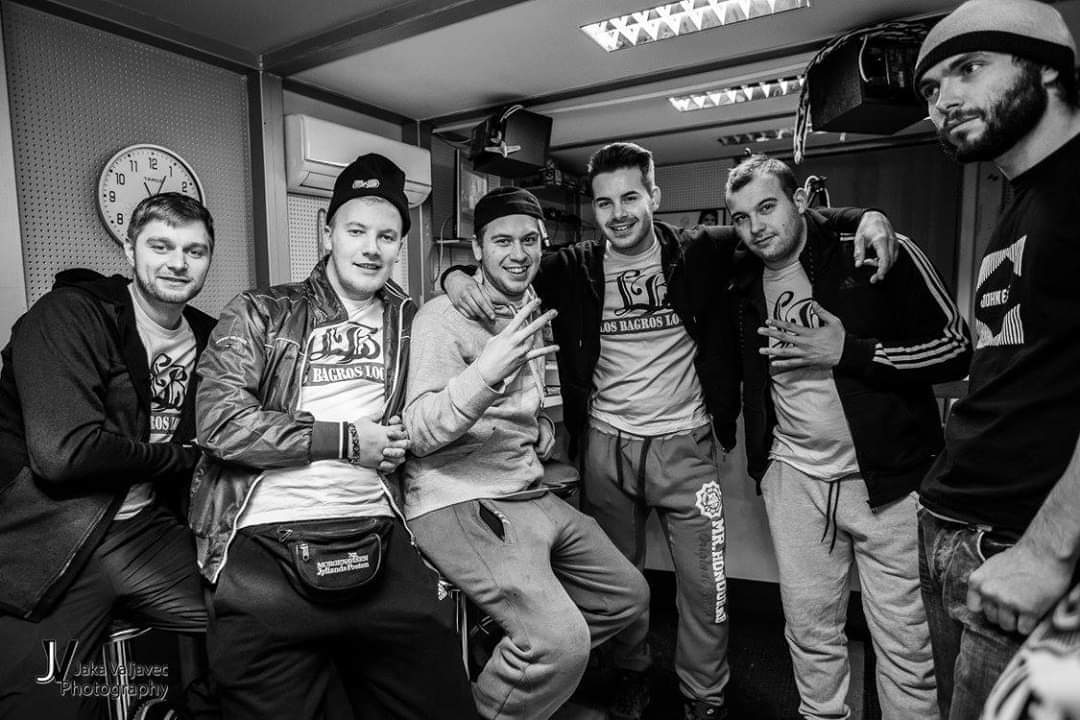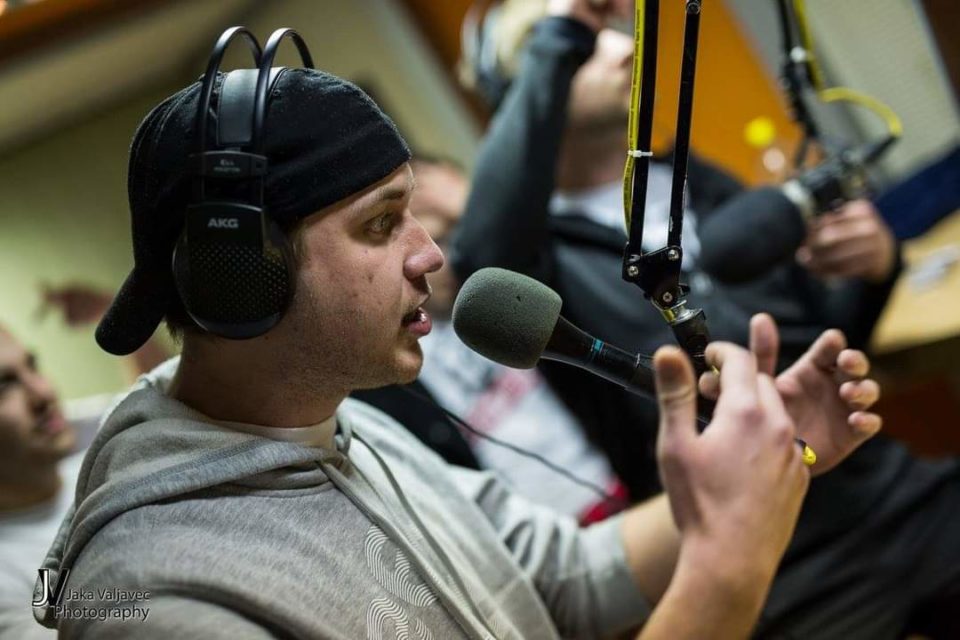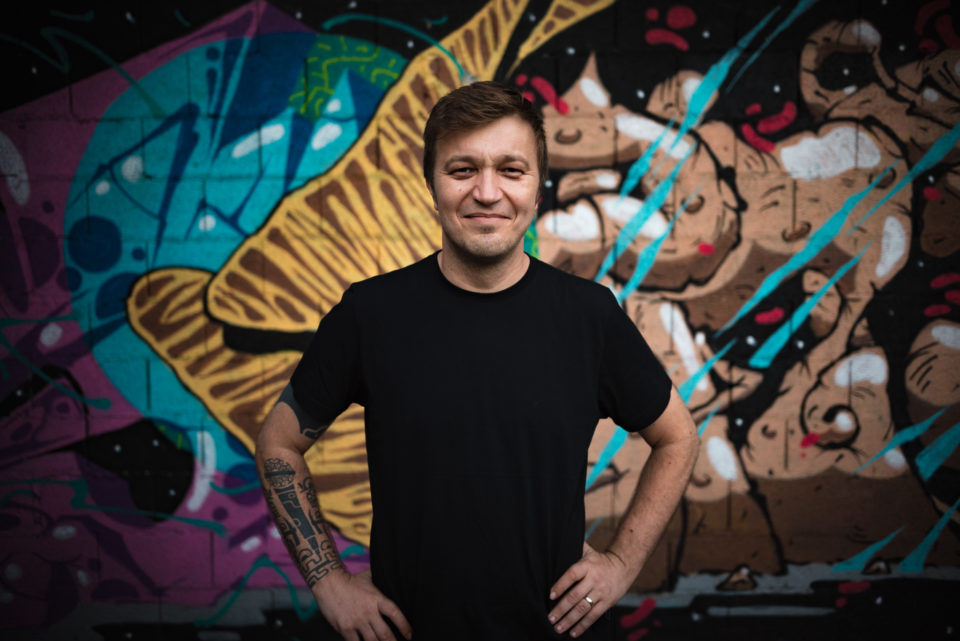
Music cares not for geographic and other boundaries. Fans and admirers of the same kind of music may easily find each other and be connected, ignoring everything that divides them.
Among the most popular musical genres of recent years is rap music, which is based on rebellion and addressing topics of social significance. The rap music of the region speaks about the issues that are common to all the countries of the Western Balkans, so easily reaches its audience. Simply put, it speaks a language that everyone understands because it is street music.
Mirela Priselac Remi, a fighter for women’s rights and gender equality and a member of the Elemental group from Croatia, says that any kind of art can connect not only the Balkans, but also bring the Balkans closer to the international audience.
“One of the advantages of art is its universal language, even in cases when we do not understand the language, as is the case with music in the Balkan languages. I believe that in music in the Balkan languages, there are universals of messages and feel that make it understandable not only to the Balkans, but also to international audiences,” explains Remi.

“Its popularity further contributes to the opportunities that rap as a – potentially – engaged genre has. In the case of engagement, its role and impact are enormous – it can serve as a pan-Yugoslav link among nations for which cultural cooperation should be a priority, for a number of reasons. One of them is certainly the fact that the music markets individually do not have a particularly wide reach, but joint efforts can create such a significant territory for the presentation and harnessing of art,” said Remi.
She believes that the Western Balkans have not yet realized the importance and capacity of rap, because of which no one has paid enough attention to the analysis of rap and trap music.
“I would say that due to the lack of a more serious sociological or musicological analysis, the public – and to a large extent, the protagonists of the scene – are not even aware of the huge potential influence of local rap and trap. There has been no more serious approach to these two genres in the Balkans, except for a few articles that dealt with comparative analysis at the level of ‘Is trap the music of the future?’. Such an analysis has been simplified, already seen, and indicates a complete lack of interest in a more serious study of new genres,” she states.
Remi was inspired by the protagonists of the African-American rap scene in her early teens, but they were not the reason she started making music.
“In fact, it is quite difficult to determine the exact reason. Maybe I was just responding to a desire to express myself creatively in a genre that I thought was the least restrictive. Despite the image of a macho musical direction, rap as a genre attracted me with its engaged nature and interesting rhythmic patterns, offering me the opportunity to express myself textually beyond the classical constraints of pop music,” explains Remi.
The full effect and influence of this genre are insufficiently utilized for social change. The full potential of rap, as a conscious mechanism, is often not even realized.
“Those who exploited it the most are mostly from the marketing sector, where we often find rap music in promotional videos of various brands. Civil society organizations, activist initiatives and platforms, or prominent individuals may use it as a training ground for raising awareness and social change. Socially or politically engaged artists are much more than mere rebels – they are people with an agenda and a plan whose primary task is to raise awareness but then to act in the arts and the public, with a call for concrete change. It is much more than rebellion, sarcasm or provocation,” she emphasizes.
Messaging and Social Engagement
Dejan Dedović Dedduh, a member of the group Who See from Montenegro, says that music is mostly divided into good and bad. The only difference is that good music is listened to for much longer.
“Rap is widely known as a narrative genre, with the text often being the most important part of the composition. The message is delivered to the listeners directly. Later, it is up to the end consumer to digest that amount of information exactly as they would digest a movie or television show. Messages are sent in various ways, through all types of media, and we never know when they affect someone. I guess that due to geography and history, not even some rap songs affect every Balkan person in the same way,” explains Dedduh.
He further states that rap music contributes to the fact that some things are not forgotten, despite our tendency to do so.

“Let’s take into account that rap started from rebellion. We can easily conclude that it is an important part of social engagement. I am not in favor of telling the same story non-stop, but of telling that story once and for all. The great names of Yugoslav music have described some important socio-political moments and events and rap will contribute to not forgetting some things. And we are prone to forgetting,” emphasizes Dedduh.
The Merging of Genres
Music has changed in recent years by merging different genres and thus increasing the audience of rap music in the Western Balkans.

“We rappers have a unique way of expressing our views on life. Music has changed in the last few years and got a more modern sound. And when turbo-folk singers started working with rappers and with trap rhythms, they raised the popularity of hip hop to number one,” explains Benjamin Mujadžić from the Slovenian group La Bagra.
He highlights the fact that the Western Balkans has gone through wars and recession, people have been out of work, and have gone through all kinds of struggles.
“Our music is the streets’ music and it belongs to the people. They can feel and understand what we write, as well as it motivates them not to give up on their dreams. We are not on our own. That is a very important message,” emphasizes Mujadžić.
A Tool for Young People
Bosnian rapper Edin Osmić, better known as Edo Maajka, points out that music and art in general can connect this region and connect different people who have similar problems.
“I became convinced of that with the work of my entire generation of musicians, and older ones as well. In the most difficult times, there have been musicians who, through their songs and performances, bring harmony and take the madness out of people’s heads, at least for some period of time,” says Edo Maajka.
The importance of rap music is great and can serve as a tool for young people against the social problems they face every day.

“It is important as it serves as an icebreaker. It encourages communication and cooperation. Also, rap is a tool and a medium in which you can say a lot in a short time, it is an outlet for young people in times of injustice, corruption, social problems, etc. Rap is definitely important for the Western Balkans,” says Edo Maajka.
He points out that there is no generation without problems, nor a perfect society. Rap music can make people aware, but it is questionable how much it can actually change things. Although raising awareness alone is a great success and a great victory in itself.
“In music, punk and rap are very similar to my mind, in terms of consciousness among listeners. I have to add, though, that the new generations are a little saturated with this awareness in the songs. It is felt in the newer trends. One guy told me that he was tired of being bombarded with reality, with content from portals, television and radio. Such songs are too tiring for him. I fully understand him. But I think that activism in music will never die out,” states Edo Maajka.
Sarcasm as a Weapon
Macedonian Rap Skillz member Jordan Ivanov explains that sarcasm and rebellion are key in rap music. It all started with social upheavals.
“Specifically, the Western Balkans are inhabited by people who have the same socio-economic problems that transcend them and form the same framework through which we see the world. That is why cooperation among artists from the countries of the Western Balkans is important and can contribute to the rapprochement of cultural differences between nations, enabling the artists themselves to break into another scene outside their country. It is important from the aspect of developing critical thinking and highlighting all the issues in society, and to give the younger generations a different perspective, that is, the prism through which the world is observed,” he says.
Rap music has influenced other musical directions as well. Merging with other genres in the last few years, rap music is getting closer to a wider audience.
“Rap music is certainly a driving force and a key factor in both music and pop culture. At the top of the music industry for several years now, we have mixed music genres that include genres like trap, followed by pop and folk music. Rap has definitely been more and more present in the last few years and although the focus of some artists is on other genres, they are trying to incorporate it or collaborate with rap artists in order to expand and gain a wider audience,” says Ivanov.
He calls his audience ‘followers’ and ‘supporters’, not fans. He believes that as a group, they have positively influenced many people who, through their music, first encountered the culture of rap.






